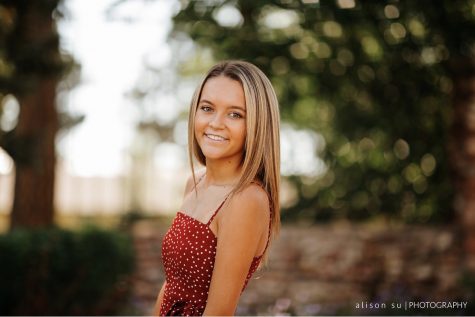How “The Bachelor” is Redefining Dating Culture

December 17, 2020
“The Bachelor” franchise, including “The Bachelorette” and “Bachelor In Paradise” is a series millions of Americans have grown to love in the last eighteen years. While the show provides viewers with weekly entertainment and a fix of drama, it also creates unrealistic expectations for what dating looks like in the real world. The show paints the unfeasible image of what getting into a relationship is like, and creates the wrong idea of what dating culture should be.
Applicants for any of the franchise’s seasons have ulterior motives when it comes to applying for the show. They know that millions of people tune in to watch weekly, and they know that if they stand out and make it to the final rounds, that they will gain even more attention from viewers. This proves that contestants, even though they are claiming they are there to find love, know that “the journey” will take their name and their face to levels they couldn’t reach otherwise. In recent years, it seems that all the popular contestants from the show’s seasons don’t come out of the show in a relationship, but rather with a branded name. If we look at the most recent season of “The Bachelor” that ended in March, we see Madi Pruitt, a small town girl from Auburn, Alabama, now modeling and being sponsored by big companies like Revolve and Nike, because she gained such a following from being on the show. Peter, the Bachelor of the Madi’s season, ended up in a relationship with a different contestant, but Madi is wildly more popular than the pair, even though the show was supposed to be focused on Peter’s love story and happy ending. People applying for the show, after seeing so many of the contestants, like Madi, building brands out of their names, aren’t just applying to potentially meet their soulmate – they are applying for the potential fame they will get out of their popularity. By broadcasting the fame that comes from signing up for a show like “The Bachelor”, the franchise is telling viewers that it isn’t about the people you meet on the show or finding love, but rather about the good fortune that will come to you after filming; it really is not about the relationships that come out of the seasons at all.
When viewers tune in every week to watch this program, what they are seeing on their screens isn’t necessarily what actually went down. The majority of the drama that happens in the show is set up by the producers, in a scheme to pull more viewers in, which helps the franchise make more money. Many Bachelor franchise stars have even publicly spoken about how much the footage was edited, and how they or a certain situation were made out to be someone or something they were not. And when promoting the show in the weekly promos, they usually focus on specific lines to get the viewer’s interest piqued, by editing and adding dramatic music/narration around it – and then the line rolls around in the actual plot, it is really minuscule and not important or dramatic at all. Furthermore, normally these shows are filmed over a ten week period. During those ten weeks, contestants aren’t even spending the entire time with the person they are supposed to be falling for. When a couple gets engaged at the end of the season, they usually have only had two or three times together where the other contestants are not present, but even then, producers and film crew are (besides the fantasy suite night at the end of the season.) But wherever producers and film crew are, cameras follow, and everyone tends to act very differently when they are being filmed. So in reality, they are engaged after spending one night together where they are not being filmed. In the 18 years since the Bachelor franchise was created, there have only been six relationships that have held together long term. These six relationships have come from a total of 46 different seasons of the Bachelor, the Bachelorette, and Bachelor in Paradise, making one’s odds of getting into a long term, happy and healthy relationship with someone from the show incredibly low.
The franchise that ABC has been so heavily promoting since 2002 is a big scheme to disconnect viewers from what dating should actually be. Dating in the real world doesn’t result in fame, fortune, and limited time with your counterpart – it is a relationship forming between two people who have feelings for each other, and whatever happens through time happens, no added pressure from producers or editors necessary. When people tune into “The Bachelor” or “The Bachelorette” weekly, they must know the importance of disconnecting what is happening in the show to how they would act on an actual, private date with another human being, without millions of viewers. Now while the disconnection is important, will we still tune in weekly and potentially apply for the show after college, most definitely.


